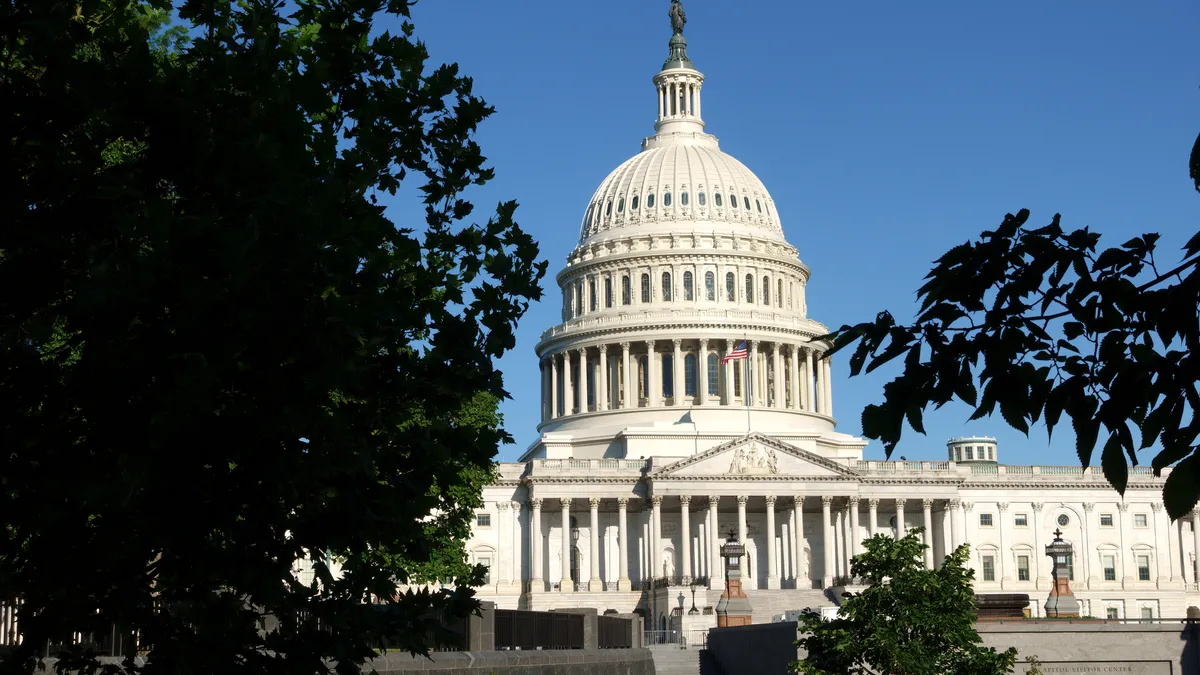Dive Brief:
- Congress has delayed — for the fourth time — a decision to finalize the fiscal year 2024 budget by extending a continuing resolution for allocations to the U.S. Department of Education and several other agencies from March 8 to March 22. President Joe Biden signed the legislation Friday.
- In a 320-99 vote in the House and a 77-13 vote in the Senate on Thursday, Congress also moved a March 1 deadline to March 8 for about a half-dozen other agencies, including the Agriculture and Transportation departments. Had Congress not acted, a government shutdown for those agencies would have begun Saturday.
- The continuing resolution includes a measure that amends the FAFSA Simplification Act to prevent a formula change that would have expanded the Pell Grant program for low-income college students. The Education Department had announced the change just this week.
Dive Insight:
In a Tuesday announcement, the Education Department said it was updating how it calculates the aid students will receive to fully align with the FAFSA Simplification Act. That technical change was expected to allow more students access to Pell Grants in the 2024–25 award year.
After Thursday's House vote, Rep. Bobby Scott, D-Va., ranking member of the Committee for Education and the Workforce, pushed back against the congressional action. "Now, as a result of this legislation, next year, fewer students will have access to the Pell Grant, and many students who do receive the Pell Grant will receive less financial assistance."
He added, "At a time when college has become increasingly unaffordable, we should be doing all we can to help students succeed. I am extremely disappointed in this outcome, and I will continue to fight for expanded access to the Pell Grant in the future.”
Committee Chair Rep. Virginia Foxx, R-N.C., took a different tack. In a statement, Foxx said the Education Department's expansion would "cripple the Pell Grant program" by creating a $7 billion funding gap next year.
"Today’s responsible CR [continuing resolution] puts a stop to the Department of Education’s reckless action, while still enabling students to get the financial aid information they need in a timely fashion and ensuring the Pell Grant is stable in the future for families truly in need,” Foxx said.
This situation represents one more hitch in the fraught rollout of the new Free Application for Federal Student Aid. The release of the form came almost three months later than usual, giving high school students and families less time to complete it and colleges less time to calculate financial aid offers.
At the K-12 level, the federal budget delays should not impact the daily operations of school districts. However, prolonging federal budget decisions can affect state and local budget planning and hamper some services provided by the Education Department.
For example, a 2022 GAO report said that during continuing resolutions, Education Department travel funds may be inaccessible, limiting staff’s ability to visit grantee locations for on-site program monitoring.
According to a 2023 report from the Congressional Research Service, a research arm of Congress, there were continuing resolutions in all but three of the 47 fiscal years since the start of the fiscal year was changed to Oct. 1 starting in FY 1977. The last fiscal year without a continuing resolution was FY 1997.
Elementary and secondary educators are especially anxious about revenues this year as the last of the federal COVID-19 emergency funding carries an obligation deadline of Sept. 30.
















